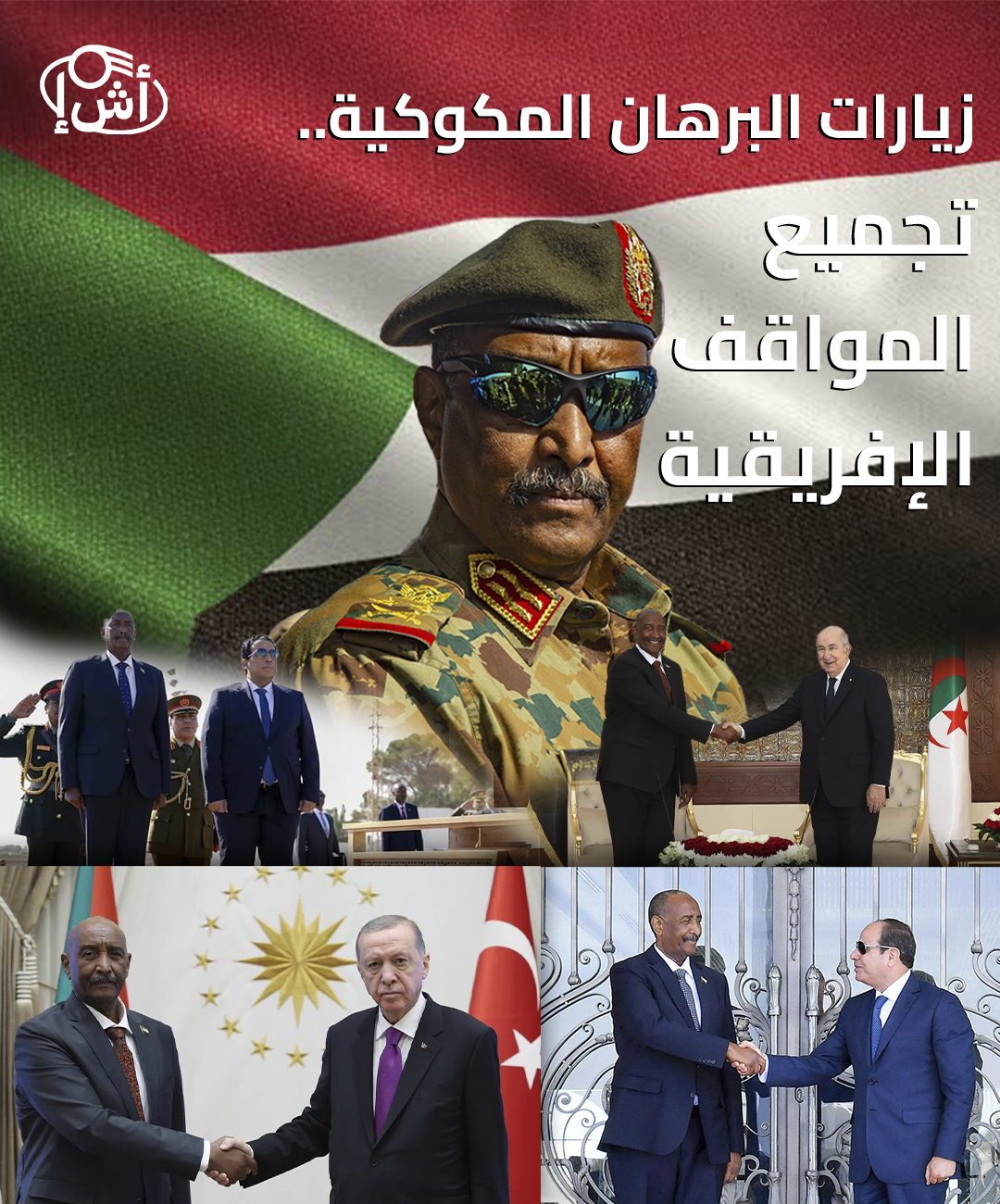Libya entered the crisis line in Sudan, by announcing the initiative “Establishing Peace and Stopping the War”, and although Libya’s ability is limited in influencing the situation in Sudan as a result of the internal conflict it is experiencing, the initiative prompted the President of the Sudanese Sovereignty Council, Abdel Fattah Al-Burhan, to visit Libya and hold talks in the city of Tripoli.
The visit comes at the official invitation he received from the head of the Libyan Presidential Council, Mohamed al-Menfi, as the United States announced the appointment of a new special envoy for Sudan as part of efforts to end the war that has devastated parts of the country and killed tens of thousands.
Abdel Fattah Al-Burhan’s visit represents a step within the framework of his African movements, as he visited during the last period Egypt, Algeria, South Sudan, Eritrea and Uganda, in addition to regional tours that led him to Turkey and Qatar, but his recent visit to Libya illustrates a move aimed at creating effects in the equation of the existing conflict, especially with the increase in international and American pressure, specifically on the Sudanese parties, after Khartoum entered into a rupture with the Intergovernmental Authority on Development in East Africa (IGAD), Burhan’s African visits seek to collect factors Additional to face the difficulties faced by the country under the ongoing war.


The areas of the visit and talks carry in their depth to gain African legitimacy for both parties, and under an African roof that carries in its details a lot of turbulent relations, between Khartoum and Tripoli, there are intertwined files that are not related to the details of Burhan’s visit, but rather to the diplomatic move that wants to find a different way to resolve the Sudanese crisis.
On the other hand, Al-Burhan’s visit to Libya tries to influence regional alliances and efforts to resolve conflicts in North Africa, as the perception carried by the talks by talking about strengthening a closer relationship with Libya, conveys Sudan’s desire to influence, even in a limited way, the balance of power in the region, which leads to new alliances or transformations in existing relations, but according to the existing data, it will not provide a model for conflict resolution and political reconciliation, as it knocks on different diplomatic doors that can affect the paths of Solution.

The other side of the visit comes with the moves of the United States, which announced the appointment of former Congressman Tom Perriello, as a special envoy to Sudan, at a time when the administration of US President Joe Biden seeks to increase the focus on the raging military conflict between the Sudanese army and the Rapid Support Forces, and restore the role in the crisis, which was characterized by weakness, after being the central actor in ending the war between northern and southern Sudan for decades, according to members of Congress, it has declined significantly, which prompted them to practice Pressure on the administration to make a shift in its policy toward Sudan.

The broad picture of Al-Burhan’s visit is evident in the size of the challenges, as the issue of Sudan’s stability is not limited to the tours he made to African countries, as it comes in parallel with similar moves made by the commander of the Rapid Support Forces Mohamed Hamdan Daglo (Hemedti) since December 27, which led him to Uganda, Djibouti, Ethiopia, Kenya and South Africa, which indicates the mobilization of diplomatic fronts between the Sudanese parties at the level of the African continent, as the deadlock horizon in which the crisis entered interacts today at the level of the conflict. In the area of international pressure on the one hand, and winning African positions on the other, and if Burhan’s visit to Libya falls within the African arena, it at the same time makes it clear that the international conflict over Sudan has not reached clear understandings or viable solutions.
Written by Nidal Al-Khedary
Report: Egypt possesses tanks double the amount in Israel’s possession
